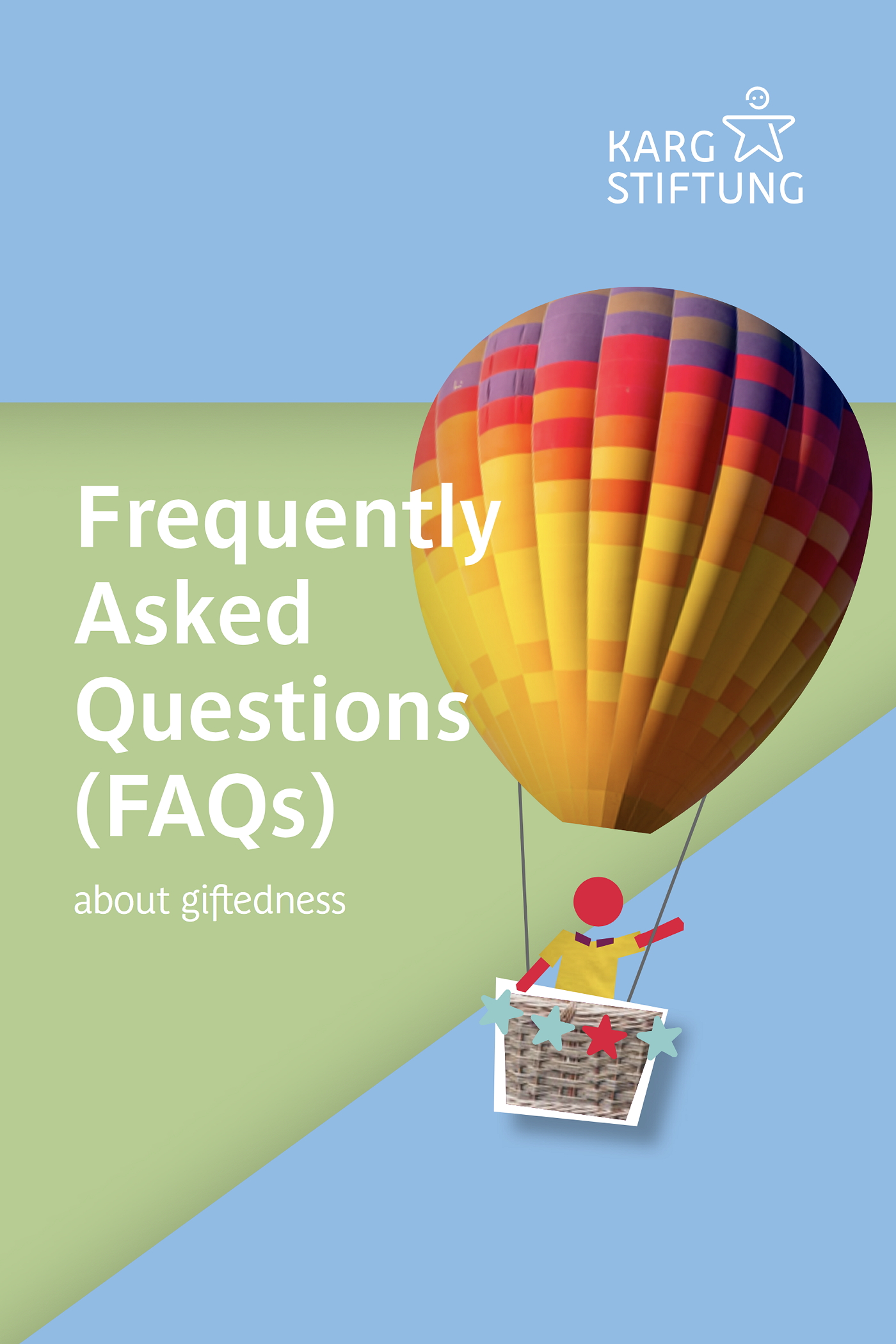Frequently Asked Questions (FAQs) about giftedness
What is important to keep in mind when identifying giftedness?
As a person’s giftedness develops, they change and so do the very things that constitute their achievement-related potential. In addition, giftedness can develop differently over time depending on the area (e.g., early on in mathematics, later in diplomacy). This dynamic view of giftedness has consequences for identifying gifted individuals. In some areas, high potential becomes apparent at an early stage whereas in others it does not emerge until later. In other words, looking for potential is worthwhile not just on one single occasion, but rather repeatedly, that is, from time to time.
Depending on the area, different characteristics also indicate a specific development potential. A specific interest in numbers or spontaneous understanding of quantity and size relationships can indicate mathematical giftedness in preschool age; musical giftedness would rather involve spontaneous music-making or a distinct memory for melodies. As a general rule, however, a quasi-natural fit between a child and a particular content or activity is indicative of high potential. Finding these and trying them out requires the provision of a variety of many opportunities and available offers. Especially with young children, providing these opportunities is often more important than identifying potential in children—according to the motto “first provide opportunities and encourage, then identify”.
As a child then gravitates toward a particular subject or area, learning ability becomes more important. In terms of recognition, this means paying attention not only to cognitive abilities, but also to prior knowledge, learning strategies, or the child’s motivation. Is the child confident about learning? Can he or she cope well with failure? All of these factors are important for further development. At a later stage, creativity, self-regulatory skills such as the ability to set goals and plan one’s own learning, and social skills emerge. Thus, for the identification of giftedness, many characteristics play a role, and their respective significance can shift in the course of giftedness development. In this view, diagnosing giftedness is thus understood as a process.

